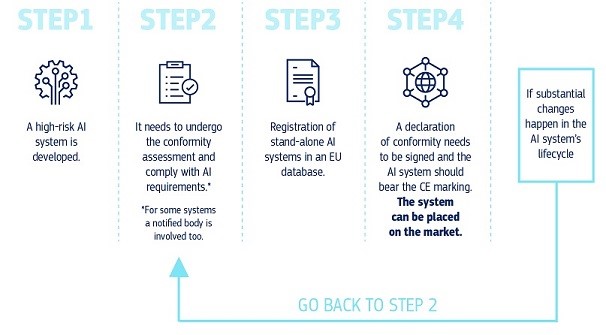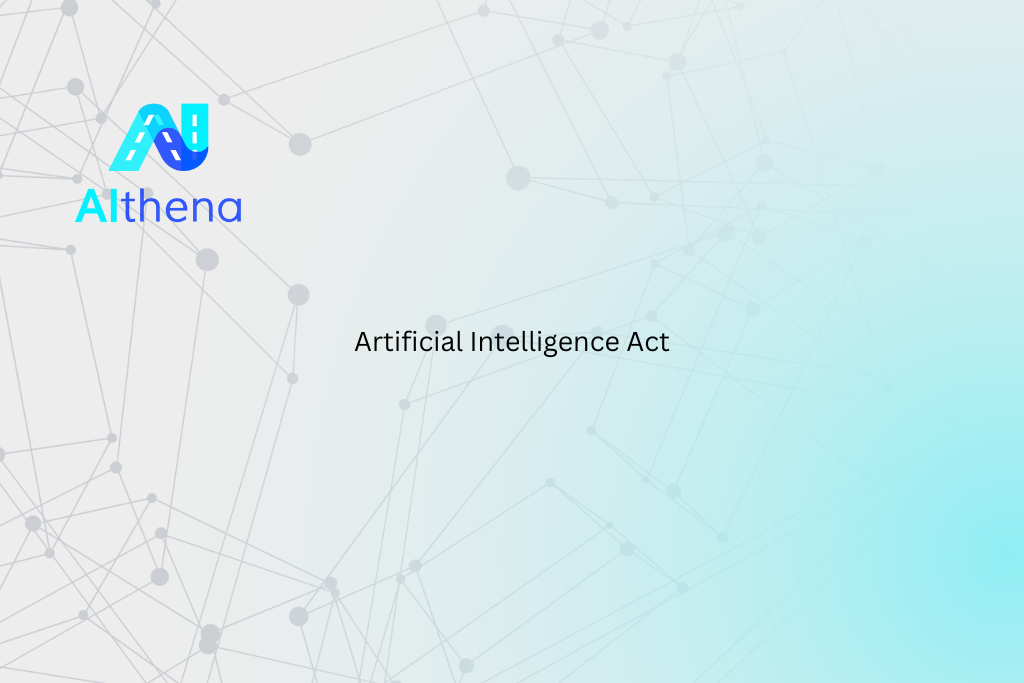On 13 March, the European Parliament approved the AI Act. Recent advances in artificial intelligence offer unprecedented opportunities to improve the road transport industry. The primary objective of implementing AI in this sector is to address challenges related to safety issues, growing travel demand, increasing CO2 emissions, and environmental degradation, aspects that the AIthena project is currently investigating.
With the world’s first-ever legislation on artificial intelligence, the EU has assumed a leading role in ensuring that this technology serves people rather than the other way around.
The Act takes a risk-based approach that seeks to facilitate innovation while mitigating harmful effects of AI systems in the EU. The overarching goal is to provide a comprehensive legal framework for the development, marketing, and use of AI in conformity with EU values. This means promoting human-centric and trustworthy AI systems that protect health, safety, and fundamental rights – including democracy, the rule of law, and the environment.
The legislation includes more specific transport-related features. First among these are processes that prioritise transport safety and security. Because the legal text classifies AI systems in vehicles as “high-risk”, providers are obligated to implement a wide range of features enhancing data quality, documentation and traceability, transparency, human oversight, accuracy, cybersecurity and robustness, and demonstrated compliance via conformity assessments. An example of risk-mitigating features of the regulation are limitations placed on the use of facial recognition systems to protect the privacy of drivers and passengers.

The AI Act is expected to officially become law by May or June after final regulatory steps, including the adoption by EU member states. Countries are required to ban prohibited AI systems six months after the rules enter into force. Rules for general purpose AI systems like chatbots will start applying a year after the law takes effect. By mid-2026, the complete set of regulations, including requirements for high-risk systems, will be in force.
The European Commission has also established the European Artificial Intelligence Office to overlook the application of the law, and each EU member state will set up their own national agency to supervise AI systems. Violations of the AI Act could incur fines of up to 35 million euros, or 7% of a company’s global revenue.
The AIthena project is committed to laying the foundations for trustworthy AI and harnessing its capabilities for the benefit of society, with a focus on human-centric approaches. The team is dedicated to advancing Explainable AI (XAI) by conducting research on data, models, and testing methodologies. Their objective is to establish a methodology centred around humans to guide the development, testing, and deployment of AI, proposing key performance indicators for XAI. Furthermore, the project aims to enhance accessibility to data and tools through European data-sharing initiatives. The AIthena methodology will support the CCAM ecosystem in complying with the AI Act and provide comprehensive guidelines covering all relevant aspects.

